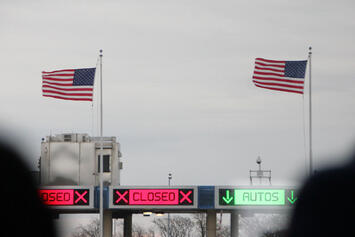
Like others, Canadians now know there’s a new sheriff in town, and he’s neither polite nor gentle. The question is how to co-exist with a raging bully whose economy absorbs nearly three-quarters of Canada’s exports and one trillion in two-way trade.
What his fans call Donald Trump’s drive for “muscular pax Americana” is not exactly warming hearts around the world. In December, Britain sent an ambassador with a well-expressed disdain for the new president to Washington. The Guardian predictably calls for Europeans and Brits to fight to preserve the continent’s disastrous welfare and climate regime. Trump’s alienated not just Canada’s New Democrats, but also Conservatives who share something of a common agenda with Trumpism.
Ironically, this is occurring when many citizens in Europe are already voting for anti-migrant, nationalism and culturally conservative candidates, producing leaders like Italy’s Giorgia Meloni who already has an amicable relationship with Trump. Canadians and other foreigners need to understand that, for Trump, everything is about making a deal, starting with outrageous demands and threats.
In the end, Trump will make the best deal he can strike, and, under the Conservatives at least, there’s hope that some common ground can be struck. Ignore the imbecilic statements about taking over Canada, Greenland or the Panama Canal, and look to strike a deal that makes sense.
But let’s be honest here: you can’t blame Trump for the current chaotic state of the world. The world “rules-based” system was falling apart — as seen in the Red Sea, Palestine, Ukraine, and throughout Africa — when the supposed “adults in the room” were in charge.
What Trump lacks, at least so far, is a strategic sense of how to build an alliance against the China-Russia-Iran-Venezuela-North Korea axis. Recently, Doug Ford proposed such an “Am-Can” alliance that would leverage the power of our huge continent’s huge resource base.
The cultural fit is not perfect, but our binational ties make us, as the Chinese would say, as close as teeth and lips. We share a huge border, similar resource bases — much of our cross-border trade consists of oil, lumber as well as some cars — and for the most part, a common language as Canada does with Britain and our fellow commonwealth countries, Australia, and New Zealand.
Read the rest of this piece at National Post.
Joel Kotkin is the author of The Coming of Neo-Feudalism: A Warning to the Global Middle Class. He is the Roger Hobbs Presidential Fellow in Urban Futures at Chapman University and and directs the Center for Demographics and Policy there. He is Senior Research Fellow at the Civitas Institute at the University of Texas in Austin. Learn more at joelkotkin.com and follow him on Twitter @joelkotkin.
Photo: C.P. Swire, under CC 2.0 License.













America First Can't Be America Alone
JK - "Ignore the imbecilic statements about taking over Canada, Greenland or the Panama Canal, and look to strike a deal that makes sense."
Joel, think of Trump's "imbecilic" statements as if he were in a fencing match. Your adjective is misplaced. Trump's statements regarding Greenland, Canada as a 51st State etc. are feints. Their intention is to shake up status quo thinking, in order to do as you suggest, "strike a deal that makes sense". Or as Selena Zito says, Trump should be taken "seriously" not "literally". My sister says she can't separate these two terms. I'm sure she is not alone.